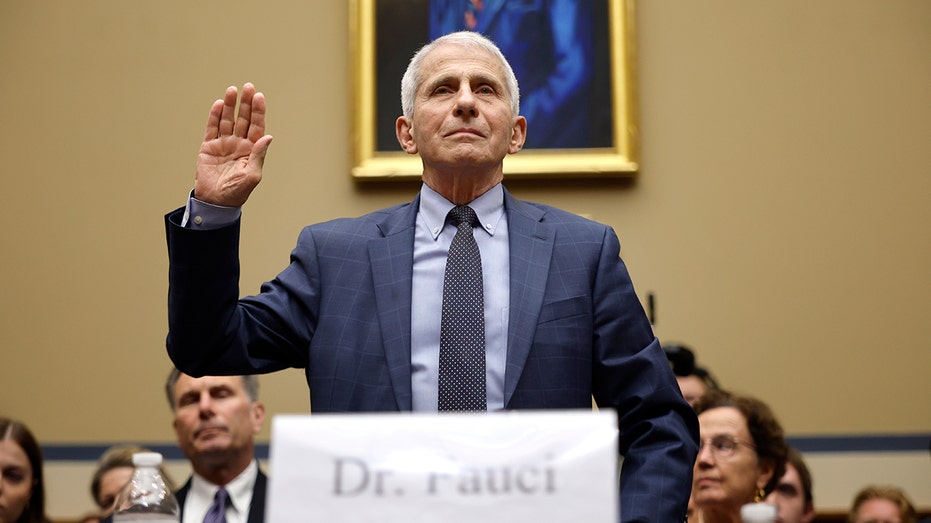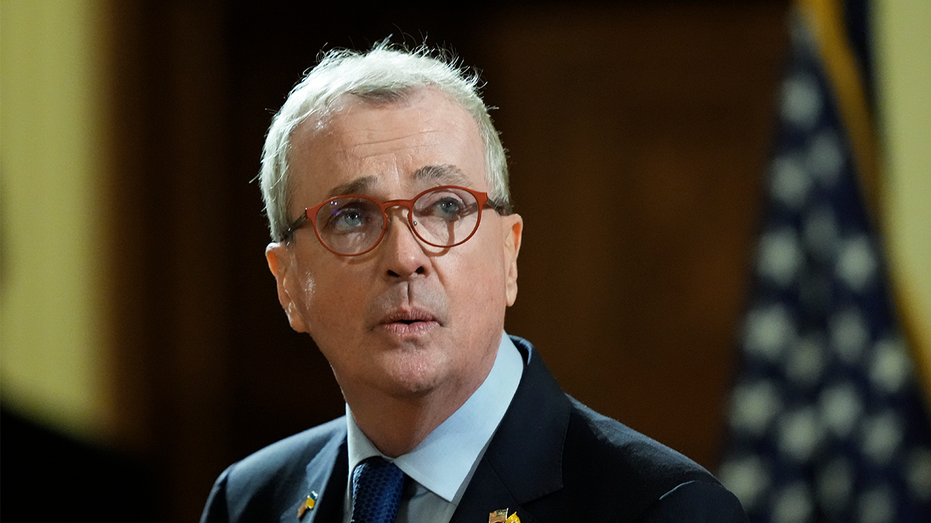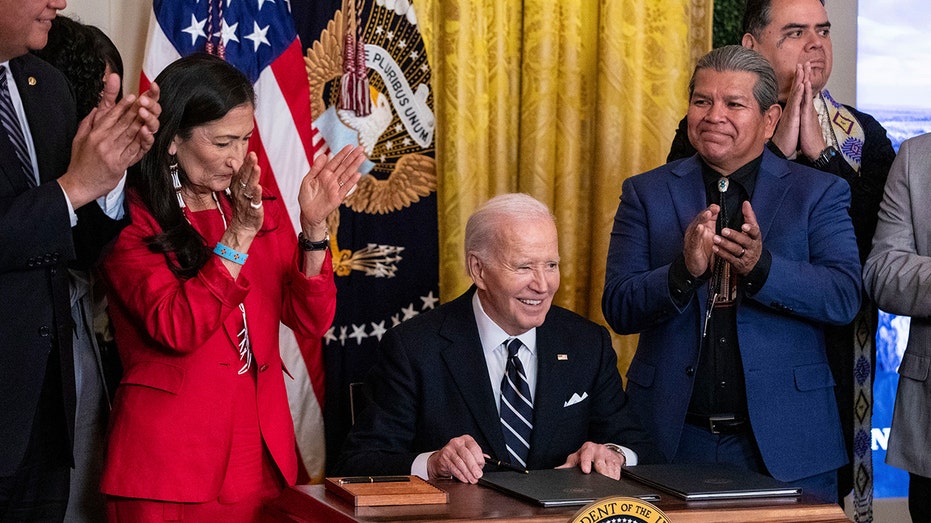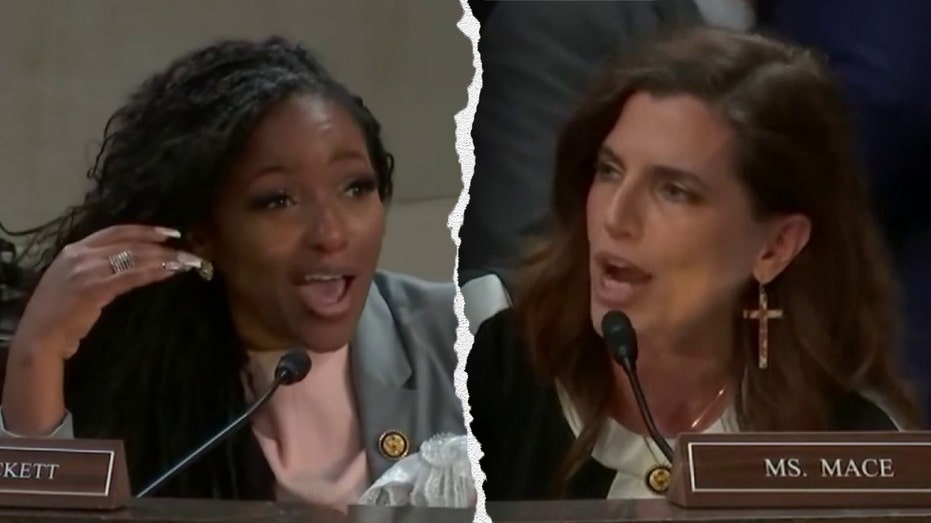Reel back to June 2021. House Homeland Security Committee Chairman Mark Green, R-Tenn., did not yet wield the committee gavel. But he had questions about COVID-19, which gripped the planet.
“For most of the pandemic, anyone who raised questions about the origin of the virus was dismissed as a crazy conspiracy theorist,” opined Green on the House floor.
Many were even reluctant to dip into the idea that COVID-19 could have come from a lab in China in 2021.
FORMER PRESIDENT TRUMP AND HOUSE SPEAKER MIKE JOHNSON: WHO NEEDS WHO?
Rep. Raul Ruiz, D-Calif., is a doctor and the top Democrat on the House panel investigating the start of the pandemic. Some Republicans touted the lab leak theory. Yet Ruiz was careful to note that the concept was far from proven. The Department of Energy and FBI suggested a lab leak was the culprit. But most U.S. intelligence agencies suspected the virus emanated from nature.
“They do not strongly with high confidence say that this was a lab leak,” said Ruiz at a July 2023 hearing. “But we heard that they do from the other side. That’s a lie.”
Like Green, Rep. Nicole Malliotakis, R-N.Y., argued in 2023 that Democrats “accused everyone who believes that there was a lab leak to be a conspiracy theorist.”
But the theory of a lab leak potentially sparking the pandemic no longer flits around the fringes.
The House COVID committee unearthed a message last year from Dr. David Morens – an associate of Dr. Anthony Fauci. Fauci was the public face of the pandemic response. He just retired as the director of the National Institute of Allergy and Infectious Diseases (NIAID).
Morens wrote that “Tony doesn’t want his fingerprints on origin stories.”
In an appearance on Fox in January 2023, Fauci declared that “the evidence points very strongly, very strongly to this being a natural jump from an animal species to a human.”
But Fauci may have tempered those views.
“I’ve also been very, very clear and said multiple times that I don’t think the concept of there being a (lab) leak is inherently a conspiracy theory,” said Fauci to the House coronavirus committee this month. “What is a conspiracy is the kind of distortions that it was a lab leak and I was parachuted into the CIA like Jason Bourne and told the CIA that they should really not be talking about a lab leak.”
BIDEN’S ATTORNEY GENERAL IS FIGHTING BACK AS THE GOP-LED HOUSE CONTEMPLATES CONTEMPT
In 2020, Fauci cited an article from the British scientific magazine Nature when talking about what caused the pandemic. The House COVID committee is scrutinizing communications between Fauci and the essay’s authors just before the item went to print. Some Republicans accuse Fauci of trying to use the article to shield criticism about a possible lab leak.
The Senate probed the origins of the pandemic at a Senate Homeland Security and Governmental Affairs Committee hearing this week.
“Today we are here to examine one of the most critical and debated questions of our time,” said Sen. Rand Paul, R-Ky., who has long been suspect of what the government said about what fueled the pandemic.
“Just like the Hunter Biden laptop story, the experts said this was disinformation,” snapped Sen. Rick Scott, R-Fla., about the lab leak concept.
Tulane Medical School Dean Dr. Robert Garry co-authored the 2020 article in Nature. Garry argued it wasn’t plausible for a lab leak to trigger the pandemic.
“So you’re saying that (idea) came to you overnight?” questioned Sen. Josh Hawley, R-Mo.
“There was new data,” replied Garry.
“Like a revelation from God? Overnight? ‘I’ve figured it out, and now I can definitely rule it out. It’s amazing!’ Is that what happened?” countered Hawley.
“It’s just the scientific method,” responded Garry.
Garry holds firm that he believes the pandemic started in nature. But he concedes some of the science evolved.
That’s why Republican senators chided Garry about the article, leaning on a zoonotic origin of the pandemic.
STATUESQUE REV GRAHAM TRIBUTE COMES TO THE CAPITOL, BUT SHIES AWAY FROM THE LIMELIGHT
“That is scientific misconduct and fraud,” charged Sen. Ron Johnson, R-Wis. “The reason the American public legitimately don’t trust scientists and health agencies because people like you, you bear that responsibility for violating the public’s trust from your scientific misconduct. And fraud.”
“It was not fraud,” countered Garry. “We didn’t put anything in that paper that we didn’t believe was true. The conclusions of that paper have held up very well. In fact, there’s been an abundance of scientific evidence that has come forward since then to support all the conclusions, everything we wrote in that paper. So, there’s no fraud.”
But even other scientists upbraided Garry.
“This is the most egregious form of scientific misconduct. Publishing a paper where you know the conclusions are untrue,” alleged Dr. Richard Ebright of Rutgers University.
Still, questions linger about what went down in Wuhan, China. That’s the site of the Wuhan Institute of Virology. It’s close to the Wuhan wet market. That’s the locale some identify as the geographic center of the pandemic.
“It’s one jump from one animal to one human. The most likely place that happens is in a laboratory,” said Steven Quay of Atossa Therapeutics and a former Stanford University faculty member. “The Wuhan Institute (of) Virology. That’s where I’d look.”
However, China is seemingly impenetrable when it comes to providing western investigators data about the pandemic.
“The Chinese government may never fully disclose all the information they have about the initial COVID-19 outbreak,” said Senate Homeland Security and Governmental Affairs Committee Chair Gary Peters, D-Mich., who called the hearing.
Sen. Roger Marshall, R-Kan., is advocating a 9/11-style commission to investigate the origins of COVID. Marshall also raised the possibility of classifying COVID-19 as a bioweapon. The Kansas Republican framed this in the context of national security.
“What did the U.S. do to contribute to (this) and how do we keep this from happening again?” asked Marshall.
Some senators acknowledge that the start of COVID many remain a stumper.
“We might be 98% or something. But we’ll always be a little uncertain,” said Sen. Mitt Romney, R-Utah.
And like much of the pandemic, that uncertainly seems to be the only thing we do know for sure.
Latest Political News on Fox News Read More




